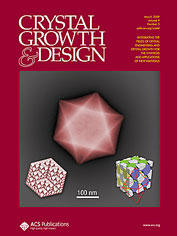Theoretical and experimental studies on the crystallization of a supercooled liquid, dimethyl phthalate, are explored in a wide range of temperatures and pressures (up to 1.8 GPa). By considering only isochronal conditions, we were able to control molecular mobility and untangle the thermodynamic effects on crystallization from kinetic ones. The analysis of experimental results revealed that crystallization of supercooled dimethyl phthalate speeds up under pressure. However, at pressures higher than ca. 1.2 GPa, a sudden change in the crystallization tendency of the investigated material was observed. Thermodynamic aspects of the crystallization process under the invariable influence of the mobility factor were described theoretically within the formalism provided by Gutzow and co-workers [Gutzow, I. et al. J. Mater. Sci. 1997, 32, 5389−5403]. The validity of the classical approach applied to express thermodynamic parameters governing the liquid/crystal phase transition under compression is carefully discussed.
